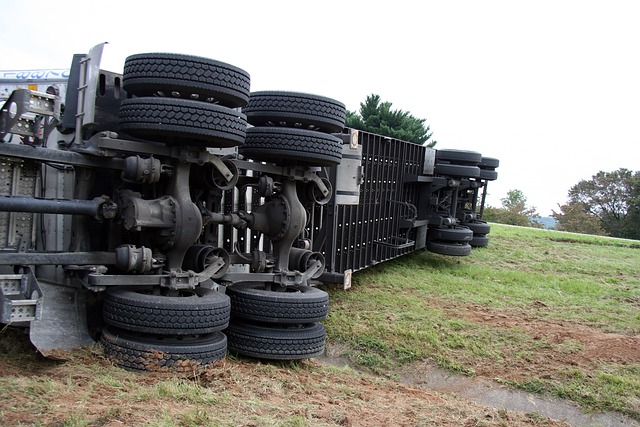Maintaining a truck battery's health is essential for ensuring long-term performance and reliability on the road. On average, a truck battery lasts between three to five years, but actual lifespan can vary based on factors like climate, driving habits, and maintenance practices. Harsh temperature changes and frequent use of the truck's electrical systems, such as towing or using accessories, can impact battery longevity. Routine checks, cleaning terminals, maintaining proper charge levels, and monitoring voltage with a battery maintainer during inactivity are key maintenance practices. Early detection of issues like longer engine start times, dimmer headlights, swollen or cracked battery cases, and reduced ability to hold a charge are crucial for timely intervention and replacement. Regular visual inspections, including looking for signs of corrosion or sulfation, can help identify potential problems before they lead to failure. Proactive maintenance, such as monitoring voltage and amperage during use and performing scheduled load tests, extends battery life and prevents hazards. Truck owners should adhere to a regular maintenance routine to avoid the inconvenience of being stranded due to a depleted battery and to maintain their truck's safety and efficiency on the road.
When a truck battery falters, it can throw a wrench into your workday or road trip. Recognizing the signs early is key to maintaining your vehicle’s reliability. This article outlines the top three indicators that your truck battery might be on its last legs, from its cranking power to its physical condition and electronic functionality. Understanding these signals will help you act promptly and prevent unexpected breakdowns. Regular maintenance and testing are pivotal in prolonging your truck’s battery life, ensuring your journeys remain smooth and uninterrupted.
- Understanding the Lifespan of a Truck Battery
- Signs of Diminished Cranking Power
- Swollen or Cracked Battery Case: A Red Flag
- Struggling Electronics: Indicators of Battery Weakness
- Sluggish Starts and Increased Engine Crank Time
- Visual Inspection Clues for Battery Health
- The Importance of Regular Maintenance and Testing to Prevent Truck Battery Failure
Understanding the Lifespan of a Truck Battery

When it comes to maintaining the reliability and performance of your heavy-duty vehicle, understanding the lifespan of a truck battery is paramount. A typical truck battery, much like its smaller counterparts, has an average lifespan that can range from three to five years, depending on factors such as climate, driving habits, and maintenance practices. Factors like temperature extremes can significantly impact a battery’s health; colder temperatures can slow down the chemical reactions in the battery, while excessive heat can accelerate wear and tear. Driving habits that frequently drain and recharge the battery, such as regularly towing trailers or running accessories like spotlights or CB radios, can also influence how long your truck battery will last. Regular maintenance, including keeping the terminals clean and ensuring a proper charge level, is crucial for maximizing the lifespan of your truck battery. Monitoring the voltage with a battery mantainer during periods of non-use, such as over the winter or during extended storage, can prevent the battery from discharging completely and thus help avoid premature failure. Keep in mind that while the average lifespan is a guideline, the condition of your truck battery can vary, making it essential to conduct regular checks and tests to ensure its health and readiness for the road. Proactive care and understanding the signs of impending battery failure, such as a slower engine crank or dimmer headlights, can help you address issues before they lead to an unexpected breakdown.
Signs of Diminished Cranking Power

When a truck battery starts to wane, it typically exhibits specific signs related to its diminished cranking power. One noticeable indicator is a longer duration required to start the engine. If your truck takes several attempts or more to turn over and start, this could signify that the battery’s ability to deliver a high current for starting the engine is on the decline. This is often due to the battery’s internal plates becoming less efficient at holding and releasing energy rapidly, which is critical during cranking. Another sign is a reduction in brightness of the truck’s headlights. A healthy battery should provide consistent and strong illumination when the lights are activated. If you notice that your headlights seem dimmer than usual or flicker, this may be an early warning that the battery’s capacity is dropping, which can affect its overall performance and longevity. Regular monitoring of these signs can help truck owners address potential issues before they lead to a complete failure, ensuring the reliability and safety of their vehicle on the road. It’s crucial for truck users to pay attention to these subtle cues and consider replacing their battery if they detect any of these symptoms, as it is a preventive measure against being stranded with a dead battery in an inconvenient or unsafe location.
Swollen or Cracked Battery Case: A Red Flag

When a truck battery starts to show signs of distress, one of the most visible indicators is a swollen or cracked battery case. This physical change is not merely a cosmetic issue but a clear red flag signaling potential failure. The battery case expansion can be attributed to the reaction within the battery as it ages and overcharges, leading to excessive gas accumulation. This pressure often forces the case to expand beyond its original dimensions, making it prone to rupturing under stress. Regular inspection of the battery case for any abnormal swelling or cracks is crucial for preventing a total failure and the subsequent hazards associated with a compromised battery, such as corrosive leaks or even an explosion. If you notice these signs in your truck’s battery, it’s imperative to address the issue promptly by replacing the battery before it fails unexpectedly during operation, which could leave you stranded or potentially damage other truck components.
Another symptom of a failing truck battery is a decrease in its ability to hold a charge. If your truck’s battery is struggling to start the engine or is not holding a charge as long as it used to, it’s a sign that its capacity is diminishing. This reduction in performance is often due to the sulfuric acid within the battery breaking down the lead plates, which reduces the active material available for energy storage. Monitoring the battery’s voltage and cold cranking amps (CCA) over time can help you detect this decline in performance early on. Regular maintenance and prompt replacement upon noticing such issues are key to ensuring your truck’s reliability and safety on the road.
Struggling Electronics: Indicators of Battery Weakness

When your truck’s electrical components, such as the headlights, stereo system, and interior lights, start to exhibit signs of inconsistency or sluggishness, it may be a clear indication that your truck battery is on the verge of failing. Typically, a healthy truck battery should provide consistent power to all electronics without any noticeable delay or dimming. However, as batteries age and their charge capacity diminishes, you might observe these symptoms. For instance, if you notice that your headlights are not as bright as usual when you first start the engine, or if they flicker after idling for a short period, this could signify that the battery is struggling to deliver the necessary current. Similarly, if your truck’s audio system initially plays clearly but begins to distort or cut out after some time, it points to a battery that is losing its ability to maintain a stable charge. These signs of struggling electronics are not to be ignored; they are early warnings that your truck battery may soon require attention or replacement. Regularly monitoring these symptoms can prevent unexpected battery failures, ensuring your truck’s electrical systems operate reliably and safely on the road.
Sluggish Starts and Increased Engine Crank Time

When your truck’s battery is on its last legs, one of the first signs you might notice is a decline in performance during starts. If your vehicle previously roared to life with a swift turn of the key or press of the start button, but now takes several attempts or feels sluggish when you attempt to start it, this could be indicative of a failing truck battery. The battery’s capacity to deliver the necessary electrical current to the starter motor may be waning, leading to a slower engine crank time. This can be frustrating, as it not only delays your departure but also raises concerns about whether the battery will hold enough charge to start the truck at all. Additionally, if you observe that the engine cranks for an unusually long period before starting, or if you hear a grinding or clicking sound for an extended time, these are clear indicators that the battery’s internal chemistry is changing, and its ability to store and release energy efficiently is compromised. It’s advisable to have your truck battery tested by a professional as soon as possible to prevent a complete failure, which can leave you stranded and in need of a tow or a jump start. Regular maintenance and monitoring can help detect these issues early, ensuring your truck’s reliability and your peace of mind on the road.
Visual Inspection Clues for Battery Health

When a truck battery starts to falter, it often sends clear visual signals that its performance is on the decline. A regular visual inspection can reveal several indicators of a failing truck battery. One of the most apparent signs is the presence of corrosion around the terminals. Corrosion can manifest as a thick, white or green powdery substance on the battery terminals and cables. This buildup can hinder conductivity and cause the battery to function improperly or not at all. Another visual clue is the condition of the battery case itself. Look for any swelling, bulging, or cracks in the casing, as these can be signs of overcharging, internal damage, or an impending leak. Additionally, check the battery’s date code; most batteries have a stamped date on top or side indicating its manufacture date. If the truck battery is nearing or has passed its typical lifespan (usually three to five years), it may be time for a replacement. Monitoring these visual clues during routine maintenance can help in anticipating and preventing a failure of your truck’s battery, ensuring that you maintain uninterrupted power for all your trucking needs.
The Importance of Regular Maintenance and Testing to Prevent Truck Battery Failure

Regular maintenance and proactive testing are pivotal in safeguarding your truck’s battery longevity and reliability. A well-maintained battery significantly reduces the likelihood of unexpected failures, ensuring that your truck operates without interruption. Checking the battery’s charge level, examining the connections for corrosion, and verifying the functionality of the charging system are essential practices. Monitoring the voltage and amperage during operation can reveal anomalies early on, allowing for prompt rectification before a complete failure occurs. Conducting load tests at intervals recommended by your truck’s manufacturer or expert advice is also non-negotiable. By implementing these maintenance routines, you can detect issues such as sulfation or weak cells in advance and address them accordingly, thus preventing total battery breakdown and the associated downtime that can disrupt your operations. Remember to handle all testing with care, as batteries can be hazardous if not treated properly due to their chemical composition. Regular maintenance is a proactive step truck owners should not overlook, as it directly impacts the safety, performance, and longevity of the vehicle’s battery system.
In wrapping up our exploration of the Top 3 Signs Your Truck Battery Is Failing, it’s clear that staying vigilant about your vehicle’s battery health is crucial. Regular maintenance and timely testing can significantly extend the life of your truck battery and prevent unexpected breakdowns. Key indicators such as reduced cranking power, a visibly swollen or cracked case, struggling electronic components, sluggish starts, and longer engine crank times are all signs that action is needed. By understanding the lifespan of your truck battery and keeping an eye on these signals, you can take proactive steps to maintain optimal performance and reliability for your truck. Remember to address any issues promptly to avoid the inconvenience and potential safety risks associated with a failing battery. Regular checks should be part of your truck’s maintenance routine to ensure uninterrupted journeys and peace of mind on the road.



